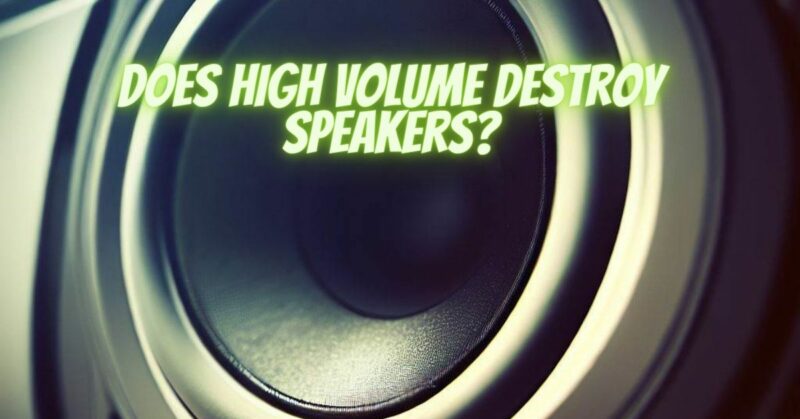Loud and powerful music can be exhilarating, but it can also take a toll on your audio equipment, especially your speakers. In this article, we will explore the effects of high volume on speaker longevity and provide insights into how to strike a balance between enjoying your music at high volumes and ensuring the durability of your speakers.
The Power of Sound
Speakers are designed to convert electrical signals into audible sound waves, creating an immersive listening experience. When you turn up the volume, you increase the power delivered to the speakers, which intensifies the sound. While this can be thrilling, it can also lead to several consequences for your speakers.
Effects of High Volume on Speakers
- Heat Generation: Playing music at high volumes for extended periods generates more heat within the speaker components. This can lead to thermal stress and potential damage.
- Voice Coil Overheating: The voice coil in a speaker can overheat when subjected to high power levels. Over time, this can cause the coil to deform or even melt.
- Cones and Surrounds: Excessive volume can cause wear and tear on the speaker cones and surrounds, affecting their structural integrity and flexibility.
- Amplifier Strain: High volumes demand more power from the amplifier. This increased load can strain the amplifier and potentially lead to distortion or damage.
- Diaphragm Damage: The diaphragm or cone of the speaker can experience damage due to the excessive excursion caused by high volumes.
- Reduction in Lifespan: The cumulative effects of high-volume usage can significantly reduce the lifespan of your speakers.
Balancing Sound Quality and Speaker Longevity
While it’s tempting to crank up the volume and immerse yourself in music, it’s essential to strike a balance between sound quality and speaker longevity:
- Quality Over Quantity: Invest in high-quality speakers that can handle high volumes without distortion or damage. Look for models with robust construction and heat-resistant components.
- Limit Prolonged High-Volume Use: Avoid playing music at extremely high volumes for extended periods. Give your speakers a break to cool down.
- Use Adequate Amplification: Ensure that your amplifier or receiver can provide sufficient power without straining. Match the speaker’s power handling capabilities with the amplifier’s output.
- Monitor Speaker Health: Regularly inspect your speakers for signs of wear or damage. Address any issues promptly to prevent further deterioration.
- Control Volume Levels: Exercise caution when adjusting volume levels. Be mindful of distortion, which can indicate that you’ve reached the speaker’s limits.
- Acoustic Treatment: Consider using acoustic treatments in your listening space to optimize sound quality at lower volumes.
High volume can provide an exhilarating music experience, but it can also have adverse effects on your speaker’s longevity. By investing in quality speakers, using adequate amplification, and practicing responsible volume control, you can strike a balance between enjoying powerful sound and ensuring the durability of your audio equipment. Ultimately, responsible use and maintenance will help you continue to enjoy high-quality audio for years to come.


